Do you dream of creating a successful blog that attracts readers and makes an impact but struggle to turn that dream into reality?
Starting and maintaining a successful blog can seem daunting, especially given the abundance of information and advice available.
But fear not!
In this post, we’ve compiled 9 practical blogging tips you can follow to refine your blogging skills.
Let’s explore these blogging tips together and turn your blogging dreams into reality!
1 Blogging Tips for Beginners
Let us now discuss the blogging tips you can follow to boost your website rankings.
1.1 Know When Keyword Research Works
Did you know traditional keyword research practices are typically best suited for new websites rather than established ones?
Using keyword research can be highly beneficial for your website’s initial stages, from your first published article to around the 300th.
The extent of this phase depends on the size of your niche.
Let’s say you’re running a fitness blog. During this period, focusing on keywords like beginner workout routines or healthy meal plans can help you attract more readers and gain visibility in the competitive fitness blogging niche.
However, as your website matures, your focus should shift from basic keyword research to establishing topical authority.
Google isn’t merely interested in blogs—it encourages building something more significant, perhaps even a personal brand. The aim is to become a trusted authority in your niche, transforming from a mere blogger to a respected figure or business entity.
This means you need to prioritize topics relevant to your niche, irrespective of keyword competitiveness, as long as they have search volume.
For example, if you’re a travel blogger, you can start covering topics like sustainable travel tips to establish yourself as an expert in the travel niche.
Refer to our dedicated tutorial on keyword research to understand the core concepts, techniques, and strategies of keyword research.
1.2 Expand Beyond Blogging
Blogging should not be the only source of traffic.
You can try different ways to share your content and connect with your audience besides just writing blog posts. By trying different approaches, you can reach more people, grow your audience, and become a trusted authority in your niche.
For instance, you can start making videos to show tutorials or share stories related to your blog topics. That’s exactly what we do on our YouTube channel.

Another way to expand beyond blogging is by starting a podcast. This is like having your radio show where you talk about things that interest your audience.
Email marketing is another powerful tool for staying in touch with your audience.
Here’s how we use email marketing to nurture relationships with our subscribers and increase audience engagement and loyalty.
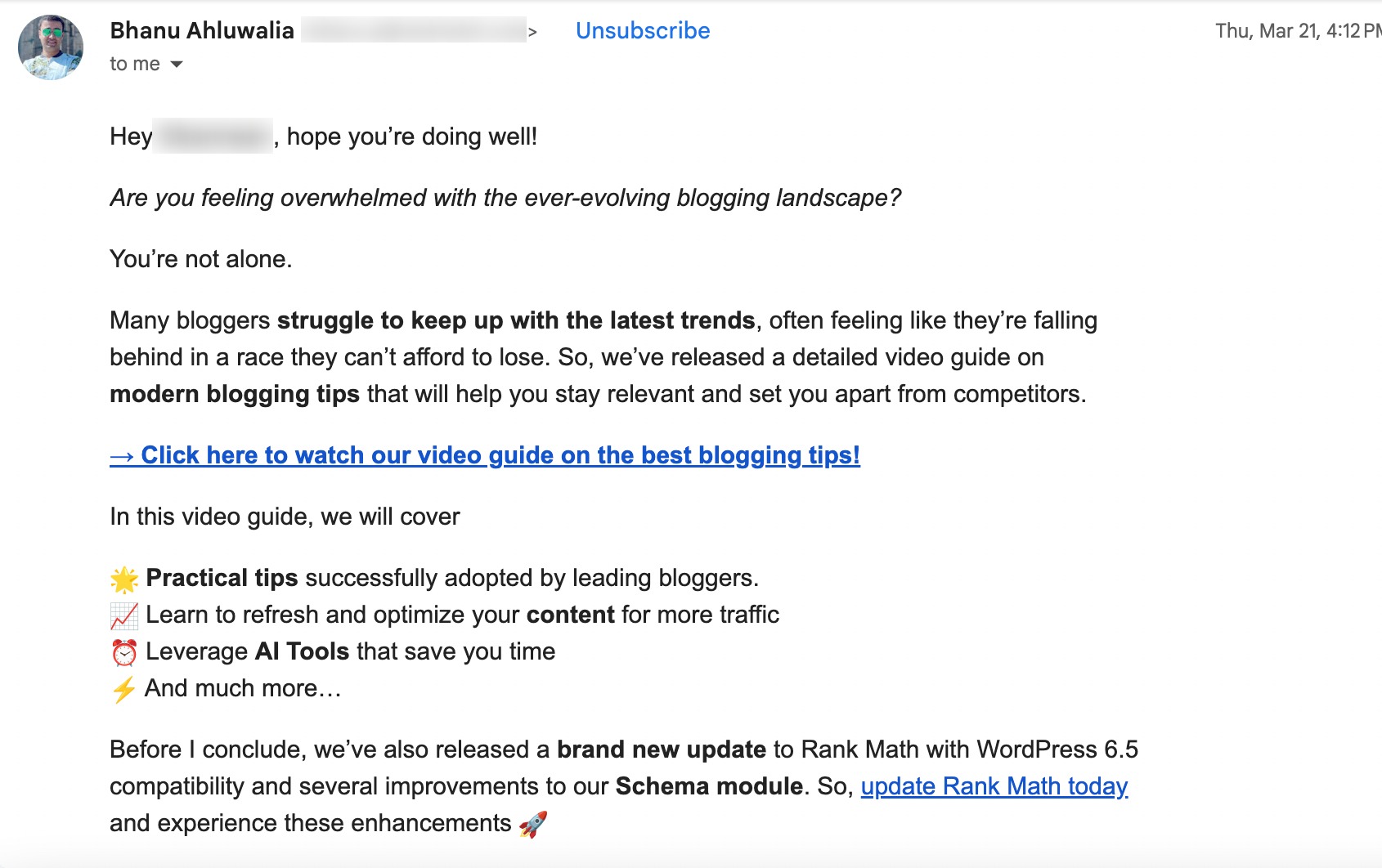
You can also create your products or services related to your blog niche. According to Statista, retail e-commerce sales are estimated to exceed $6.3 trillion in 2024. That’s huge!💰
You can create anything from ebooks and online courses to physical merchandise like clothing or accessories.
For instance, if you have a fitness blog, you can create a workout guide ebook or start selling your line of workout gear.
To truly maximize your impact, take a holistic approach to content creation.
Begin by establishing a foundation with a small blog. However, consider how you can repurpose it into video format for every piece of content you create for your blog. You can extract shorter clips to share on various platforms by creating long-form videos.
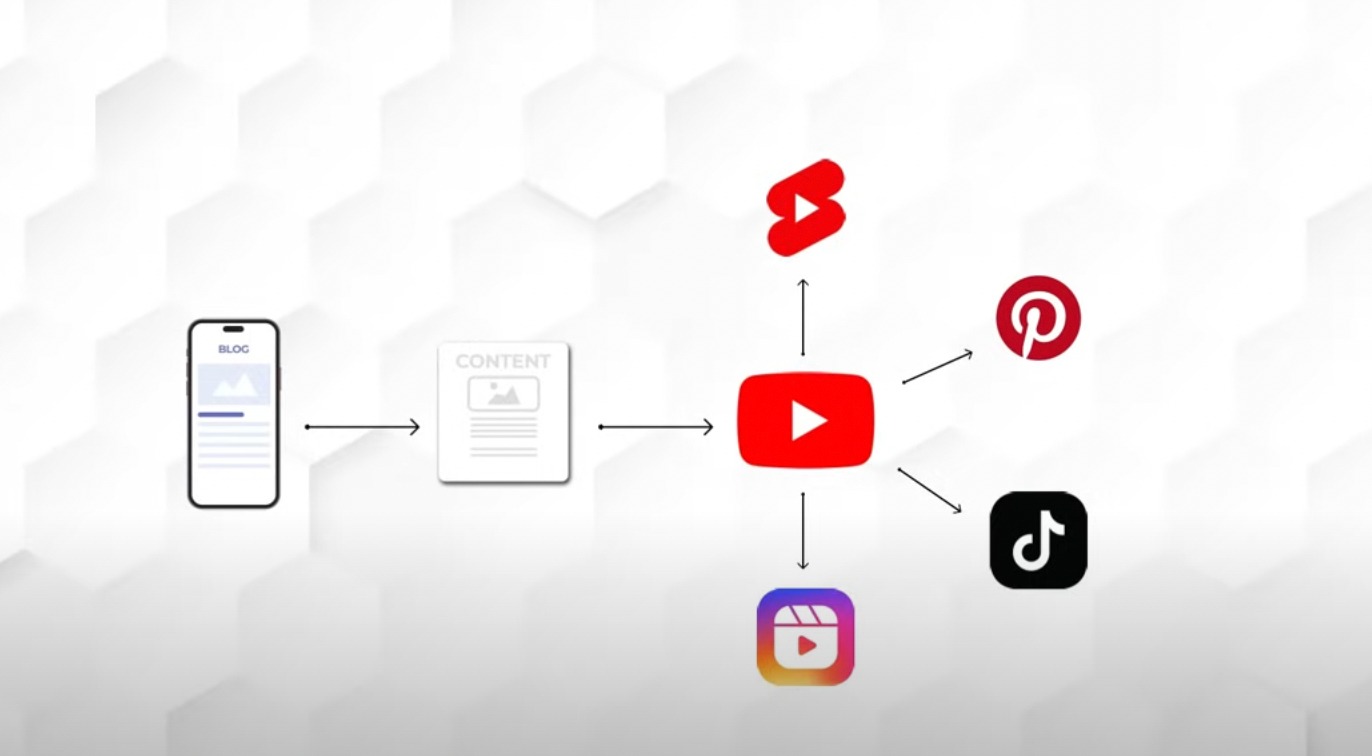
This approach transforms your blog into more than just a written platform—it becomes a versatile content hub with multimedia capabilities.
1.3 Use AI With Care
In light of the ongoing Google core updates, a clear trend emerges: Google is cracking down on websites that rely heavily on AI without human input. While your site may escape immediate repercussions from these updates, its future susceptibility remains uncertain.
In the past, bloggers often borrowed ideas from top-ranking blogs to create comprehensive articles. However, today’s blogging environment requires originality, high quality, and innovation and should follow the E-E-A-T principles.

AI-generated content tends to develop learned information, lacking the unique perspective and value that human input provides.
Therefore, if you opt to utilize AI for content creation, ensure that it’s done thoughtfully. Adding your personal experiences enriches the content, making it more authentic and engaging for your audience.
For instance, if you’re a travel blogger writing about a popular destination, sharing narratives from your own adventures or highlighting what you’ve discovered can add depth and credibility to your content.
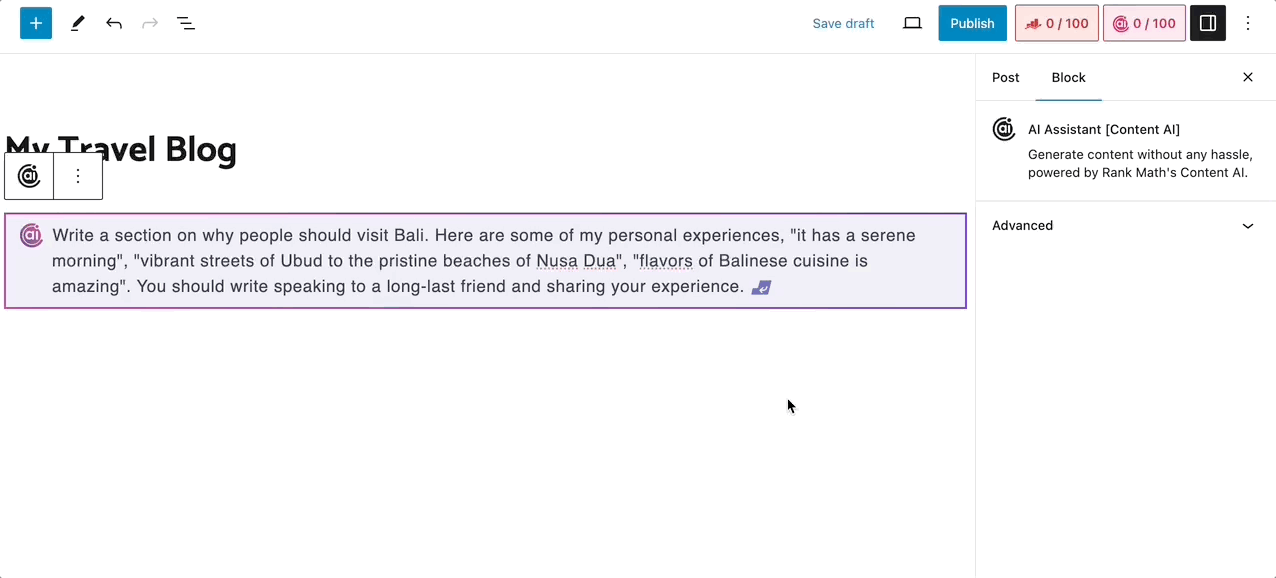
Refer to our dedicated tutorial on using Content AI and create your own personalized and optimized content with ease.
1.4 Update Content to Match Search Intent
Another blogging tip that goes unnoticed is updating the content to match the search intent.
A keyword’s search intent can evolve over time, so updating your content to match the intent is important.

For instance, you have a product review blog post about “best budget smartphones,” but your audiences searching for this topic primarily seek price comparisons, features, and performance benchmarks rather than generic product descriptions.
Updating your content to include detailed price comparisons, feature breakdowns, and performance evaluations would better align with audiences’ search intent, improving visibility and engagement.
To identify which articles need updating, you can use tools like ChatGPT.
Provide the AI with context about the industry update, such as the pricing of smartphones, and ask it to analyze your published articles to determine which ones need updates to align with current and future search intent.
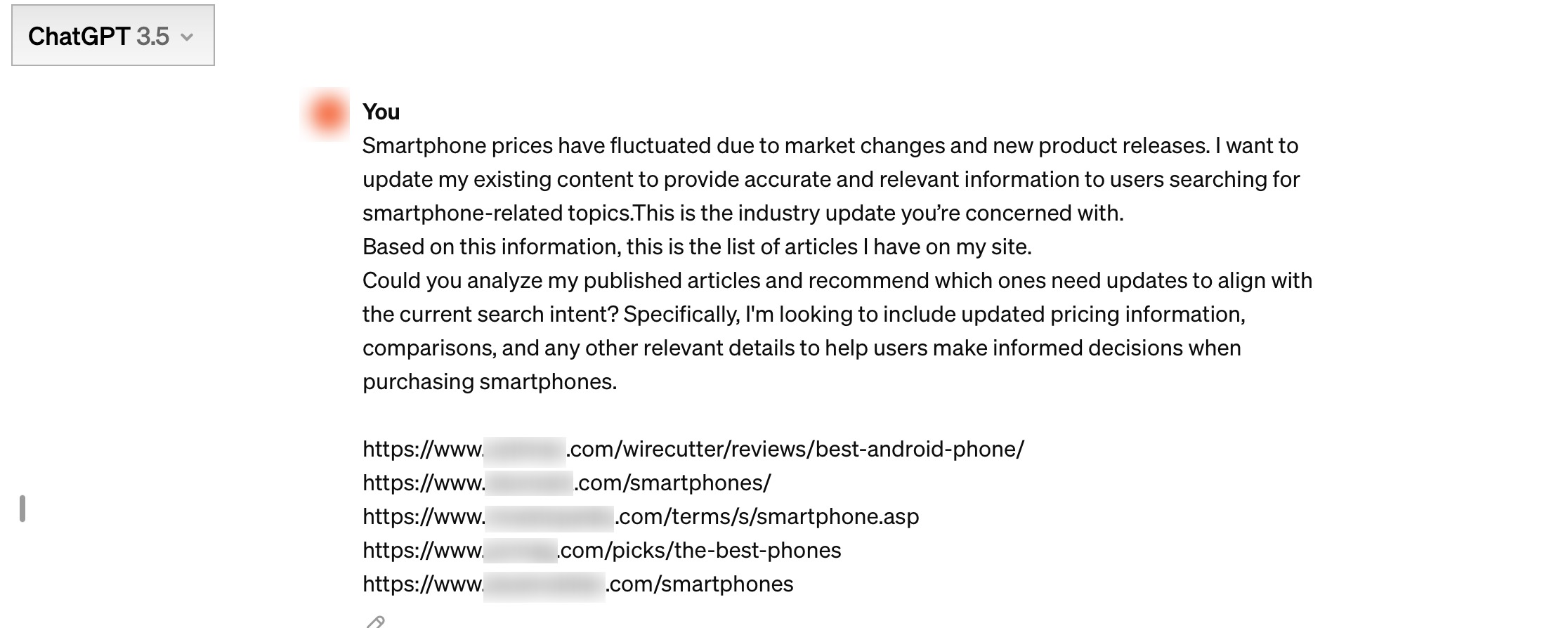
ChatGPT will provide you with details on which articles you need to update.
If you have Rank Math installed on your site, retrieving the SEO titles of your published articles is very easy.
Navigate to Rank Math SEO, access the Status & Tools section, and export the SEO titles to a CSV file, as shown below.
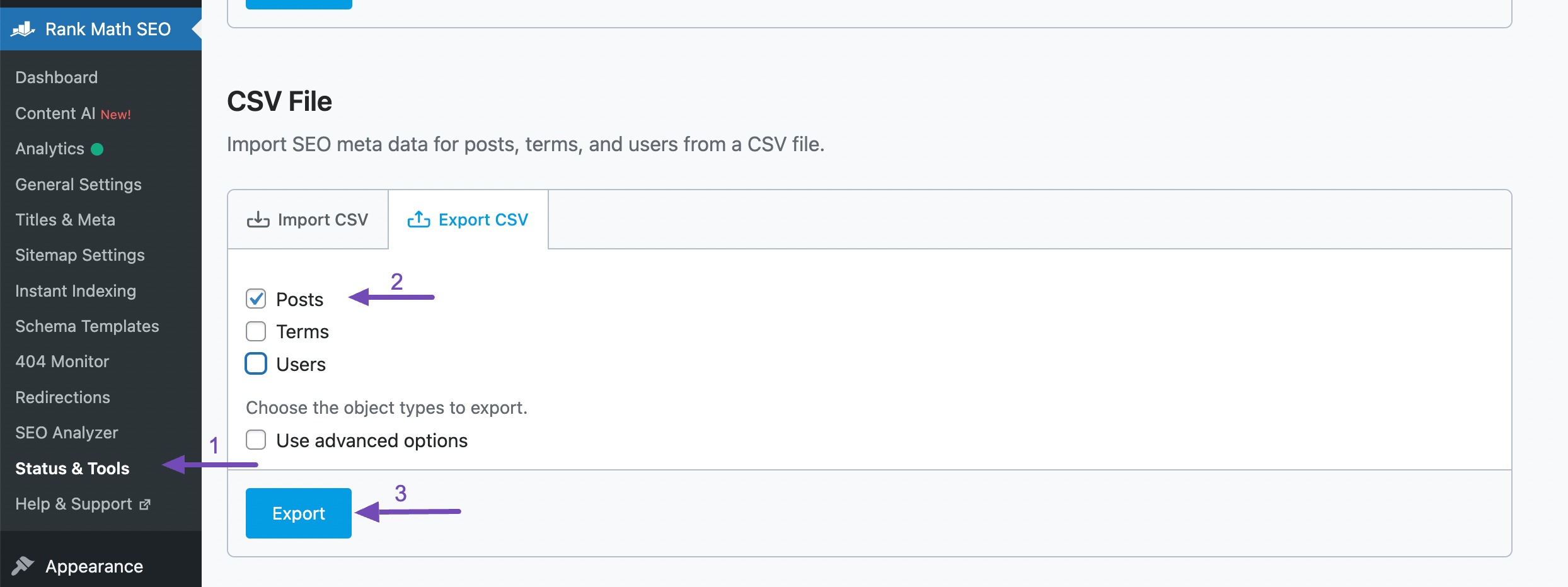
All of your SEO titles will be exported to a CSV file. You can view the titles directly in the CSV format or upload the file to Google Sheets for easier access.

Once you have the titles, you can input them into the AI prompt for analysis. Exercise common sense to validate the AI’s suggestions and ensure they align with your content strategy and audience needs.
1.5 Update Older Content
We’re sure you’ve come across the next blogging tip: update older content many times.
But do you really work on it?
If your previously successful content isn’t performing well now, it’s time for updates.
Check your Google Search Console Performance report to identify pages that performed well last year but not now. Compare performance from the last 28 days to the same period last year.
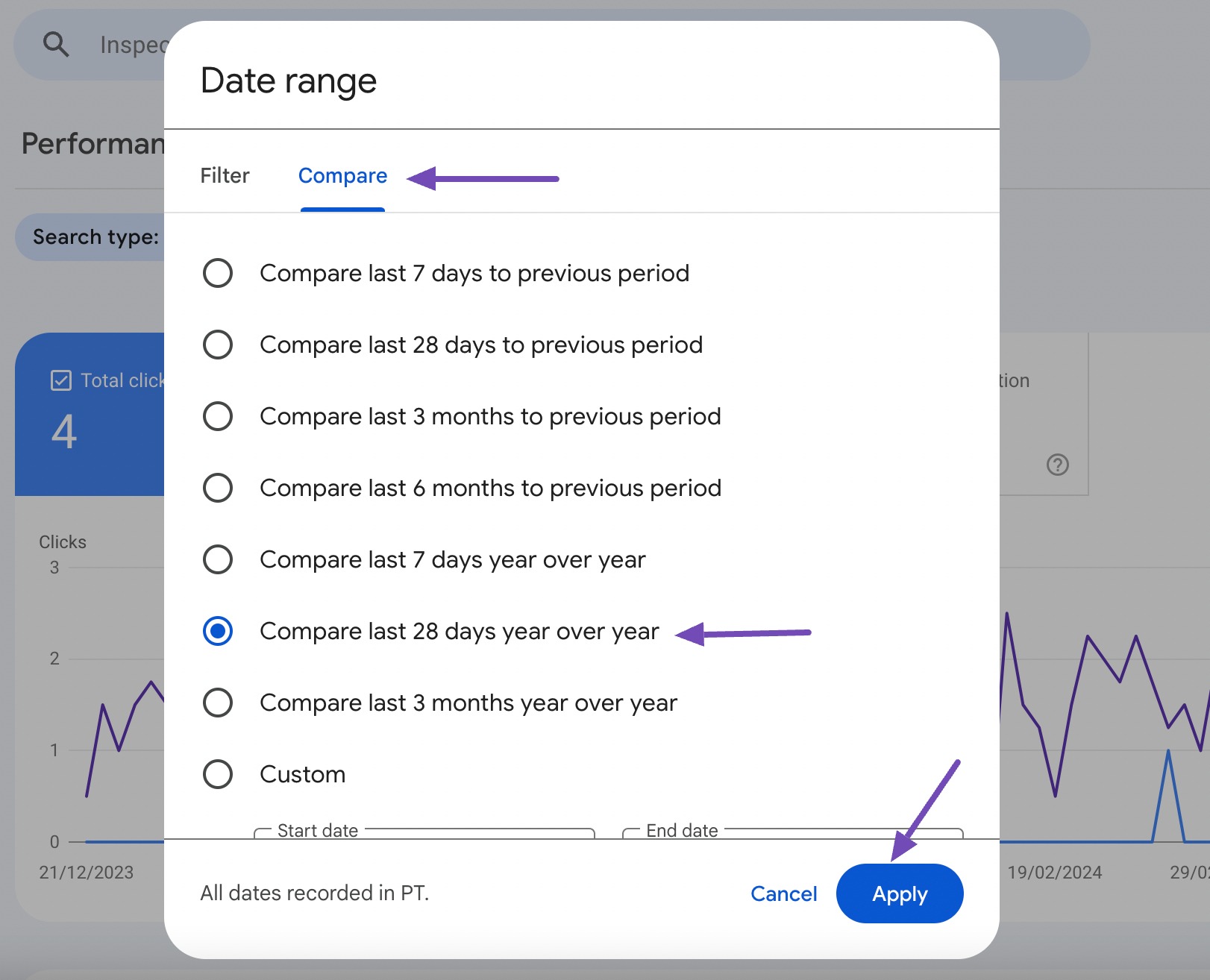
Scroll down to the Pages section and check which pages are affected. Update the pages that were most affected.
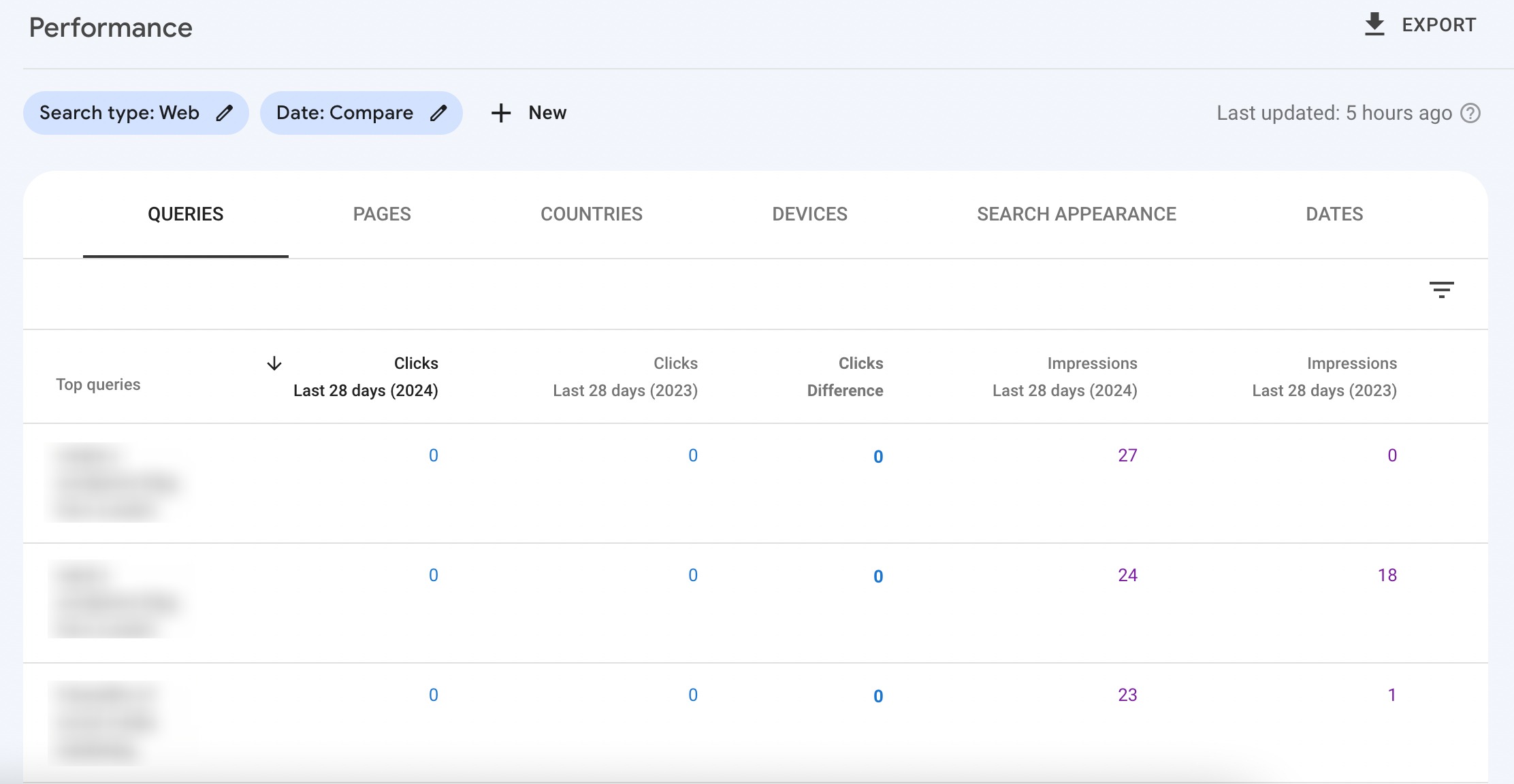
Once all the pages are updated, focus on the top-ranking pages by revisiting them every three months. Add updated information and remove outdated content to ensure they stay at the top.
If you’ve installed Rank Math on your site and linked it with your Google Analytics and Search Console, navigate to Rank Math SEO → Analytics.
Refer to our dedicated tutorial on connecting your Google account with Rank Math SEO.
Next, navigate to SEO Performance and scroll down to your content list. Sort them by clicks, and you’ll find your top-performing pages.
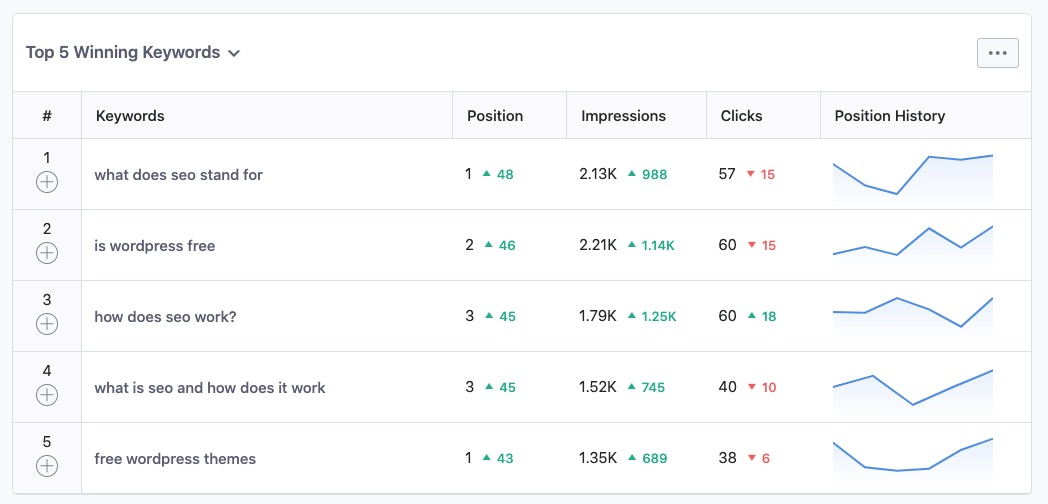
Once you have your content list, exclude recently published pages (within 6 months) and those already updated in previous phases.
Also, allocate a dedicated month to update content based on priority.
1.6 Find Keywords in Google Search Console
The next blogging tip is to find keywords in Google Search Console.
By aligning your content with relevant keywords and search intent, you can attract more organic traffic and enhance the overall effectiveness of your blogging strategy.

Navigate to the Performance tab of Google Search Console. Scroll down to the QUERIES section to pinpoint keywords that do not rank well or match the search intent.
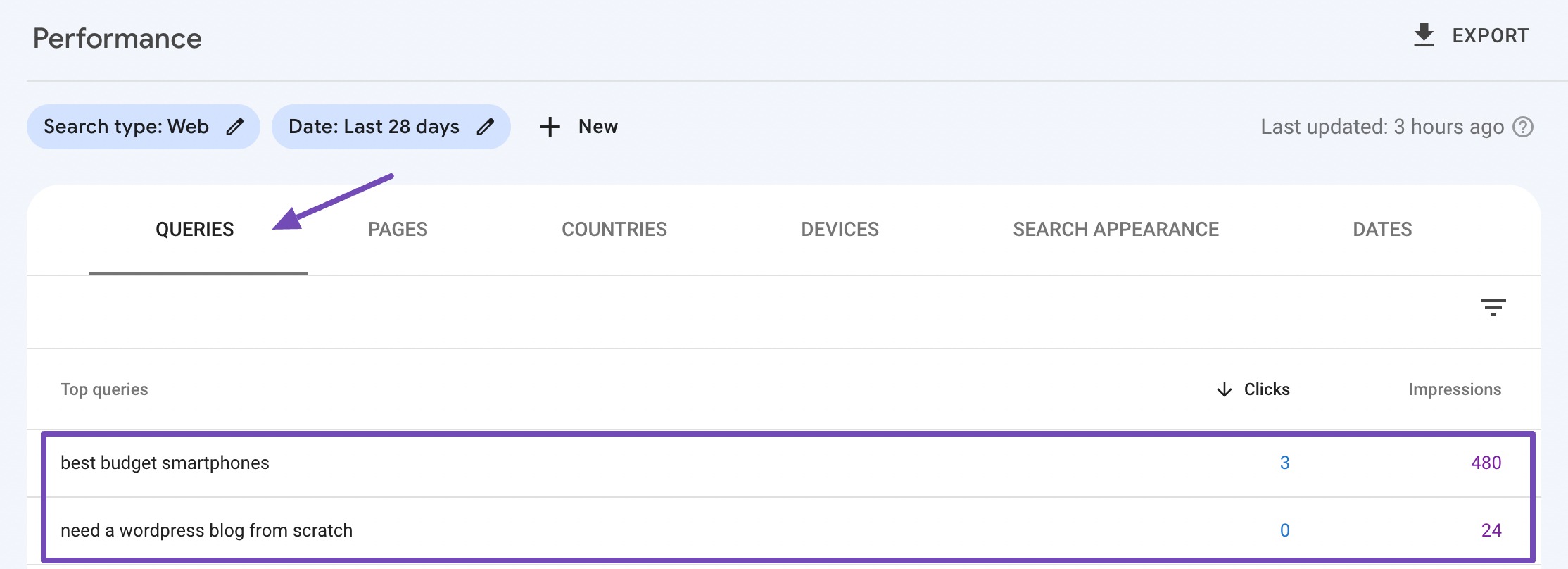
If the keywords do not drive significant traffic, you can consider creating content based on your audience’s search intent for that particular keyword.
1.7 Optimize Your Internal Links
Optimizing internal links is another blogging tip that can significantly enhance your website’s SEO and user experience while reducing bounce rates.
Internal linking involves strategically linking one website page to another, creating a network of interconnected content.

One essential aspect of optimizing internal links is ensuring that anchor text accurately reflects the linked page’s content and contains relevant keywords.
This helps your audience understand the context of the linked page and provides search engines with valuable information about the content’s topic and relevance.
For instance, instead of using generic anchor text like click here, opt for descriptive anchor text such as learn more about SEO best practices.
Refer to our dedicated tutorial on internal links and boost your rankings on search engines.
1.8 Improve Readability Engagement Time
Improving readability and engagement time is an important blogging tip that directly impacts user experience and overall website performance.
When audiences find the content easy to read and engaging, they’re more likely to stay on your site longer, consume more content, and return for future visits.
Include visual elements such as images, videos, infographics, and charts to complement your written content and enhance engagement. Visuals can help break up text-heavy sections, illustrate key points, and provide additional context or explanation.
We add relevant images and videos in our posts to create an enjoyable reading experience for our audience.
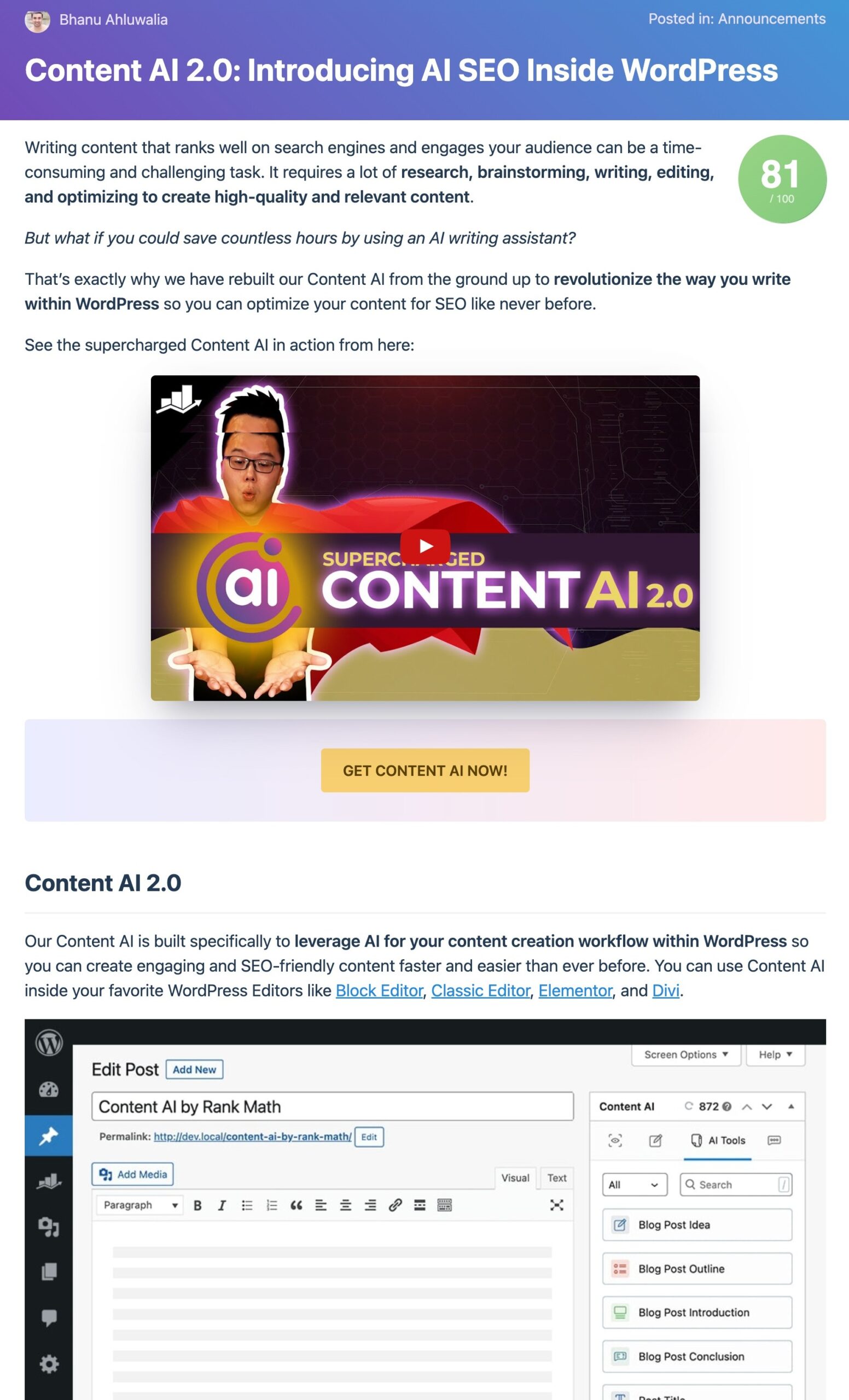
If you’re using Rank Math on your WordPress site, we include Content Readability checks in our list of SEO checks.
For instance, if a paragraph exceeds 120 words, we’ll flag it for you. Click on the flagged icon, and we’ll pinpoint the section of the article in question.
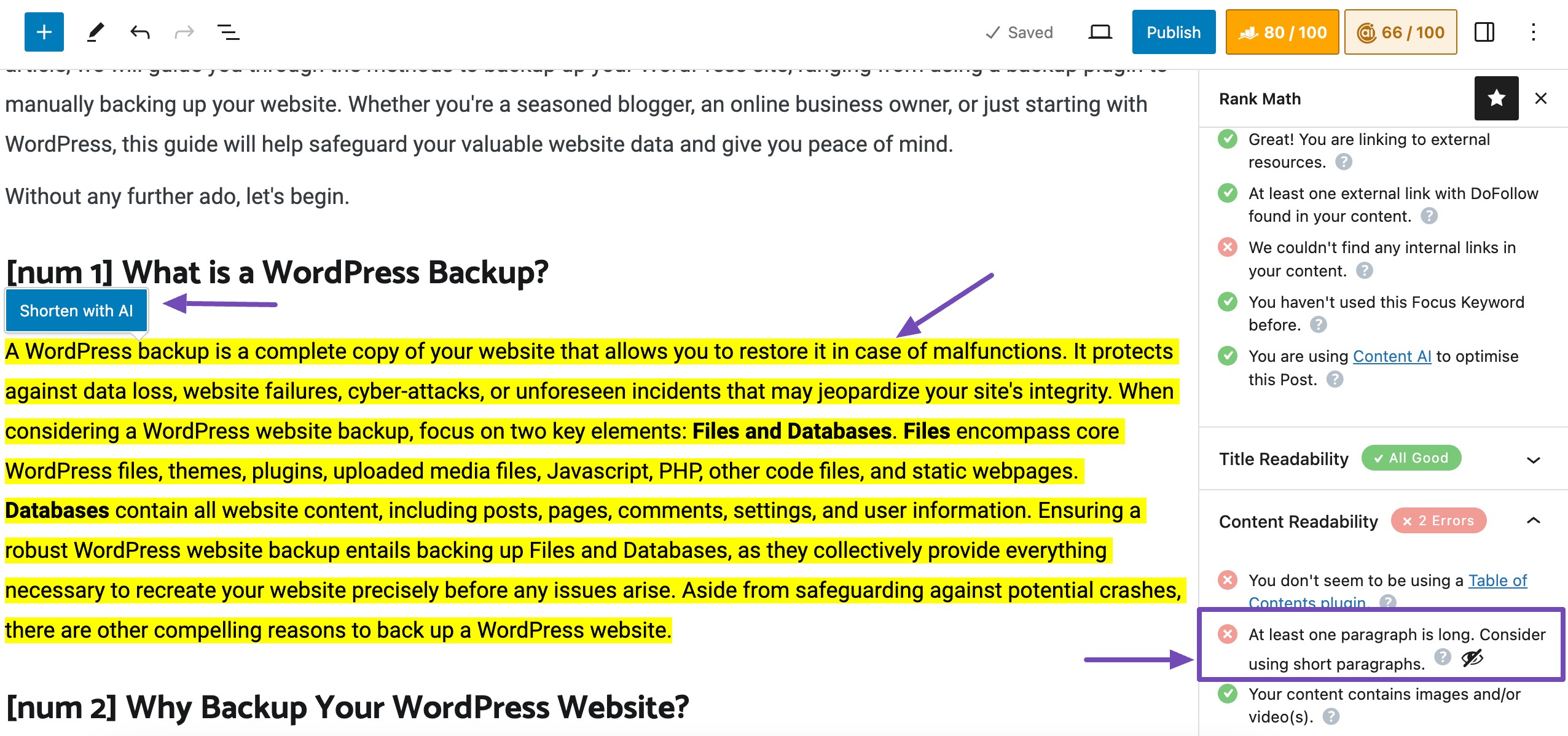
Also, if you prefer, you can use AI to shorten the paragraph.
1.9 Use AI for Blogging
AI tools offer a range of capabilities that can enhance various aspects of blogging, from generating ideas to optimizing content for search engines.
You can avoid wasting time creating your meta title and description manually.
With Rank Math, click Edit Snippet and Generate With AI to effortlessly create meta information for your post.
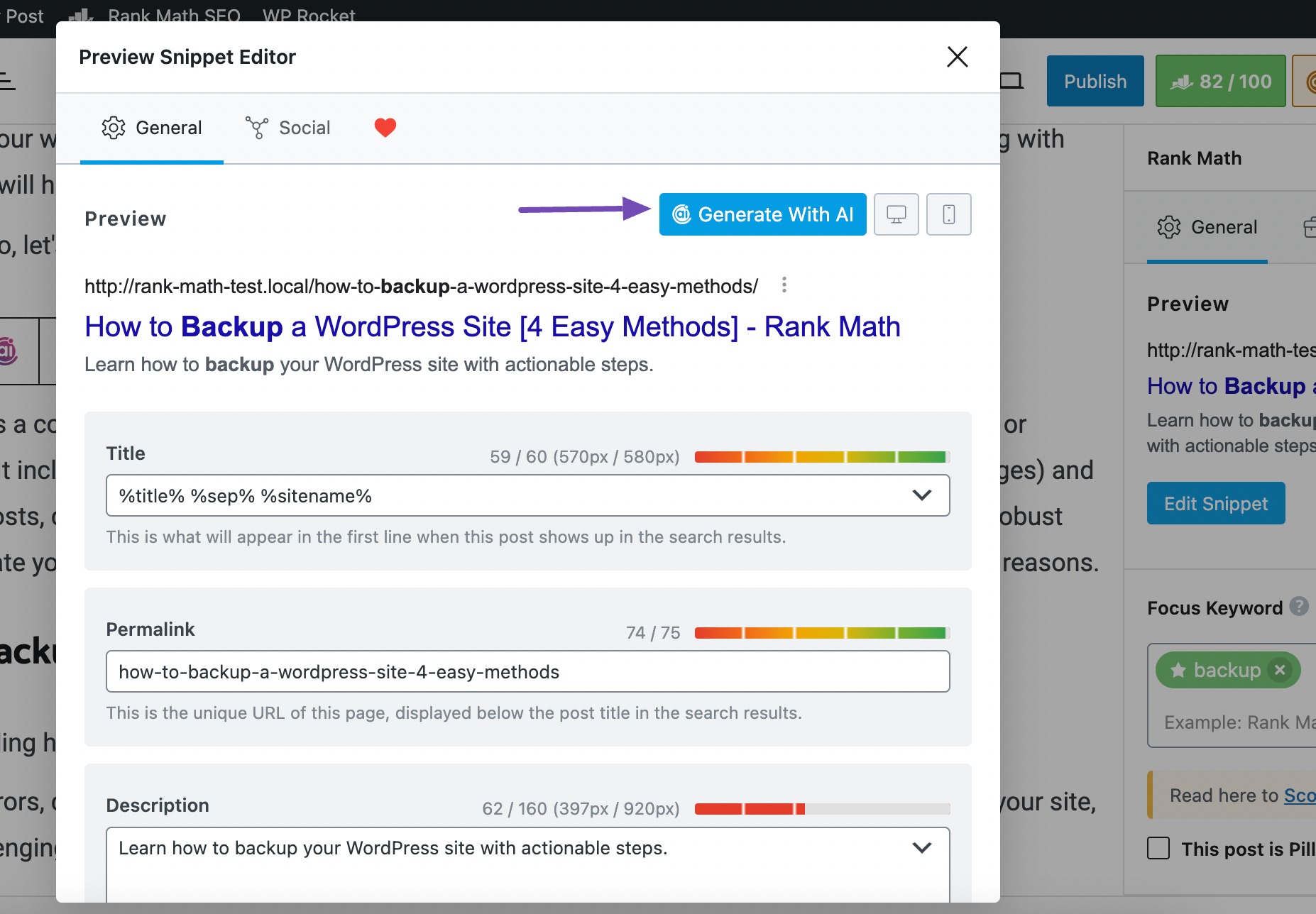
If you’re looking to optimize your page based on the article’s ranking for your target keyword, the Content AI Research feature can help. It gathers all the relevant information you need to improve your chances of ranking higher.
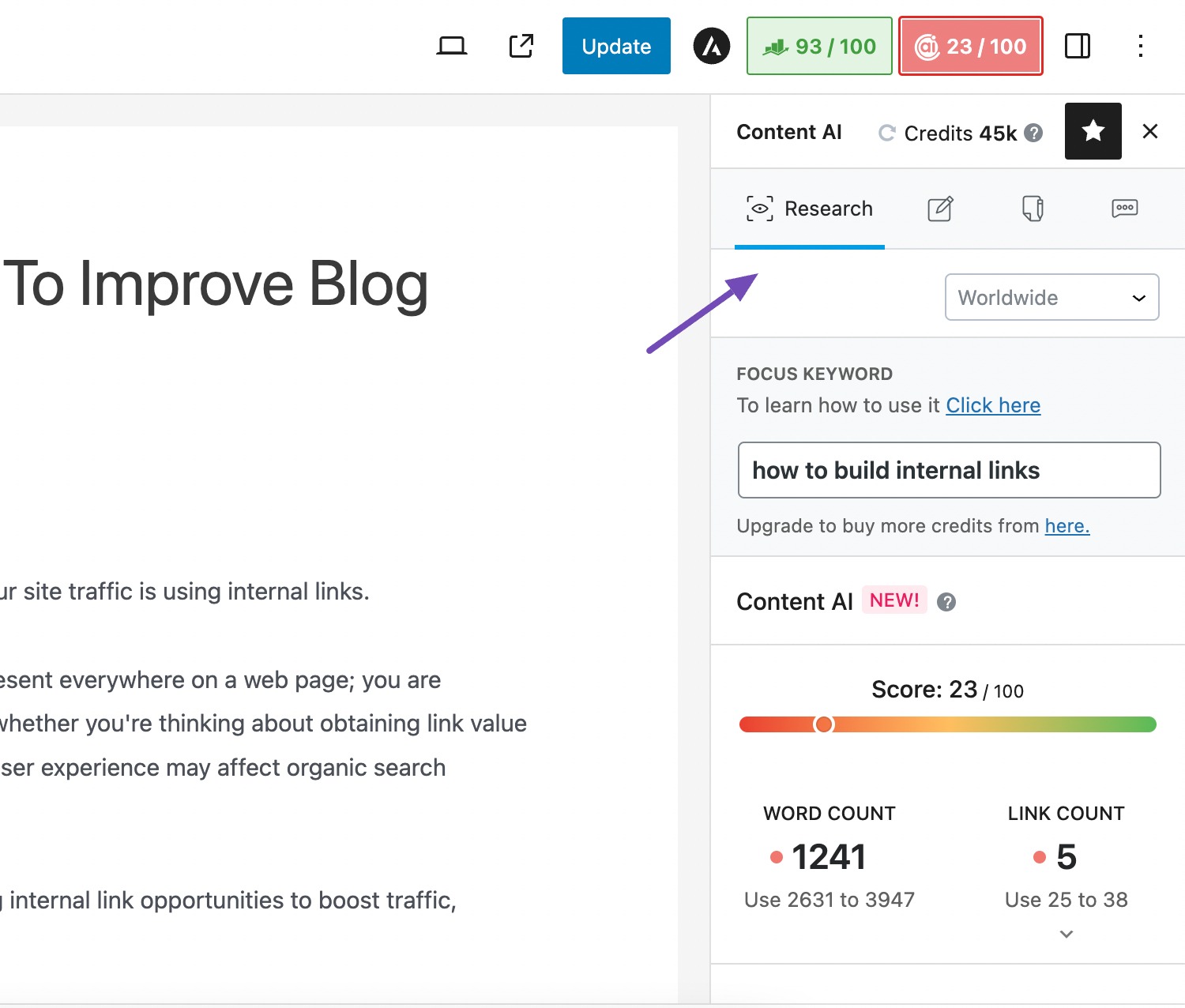
2 Conclusion
Blogging isn’t just about writing words on a screen; it’s about connecting with people, sharing stories, and making a difference uniquely.
Remember, the key to successful blogging lies in authenticity, consistency, and a genuine desire to help and engage your audience.
Write from your heart, stay true to your voice, and don’t be afraid to experiment and evolve along the way.❤️
And let’s not forget the importance of optimizing your content for search engines, using tools like AI to streamline your workflow, and always keeping your audience’s needs front and center.
If you like this post, let us know by Tweeting @rankmathseo.
Happy blogging!

